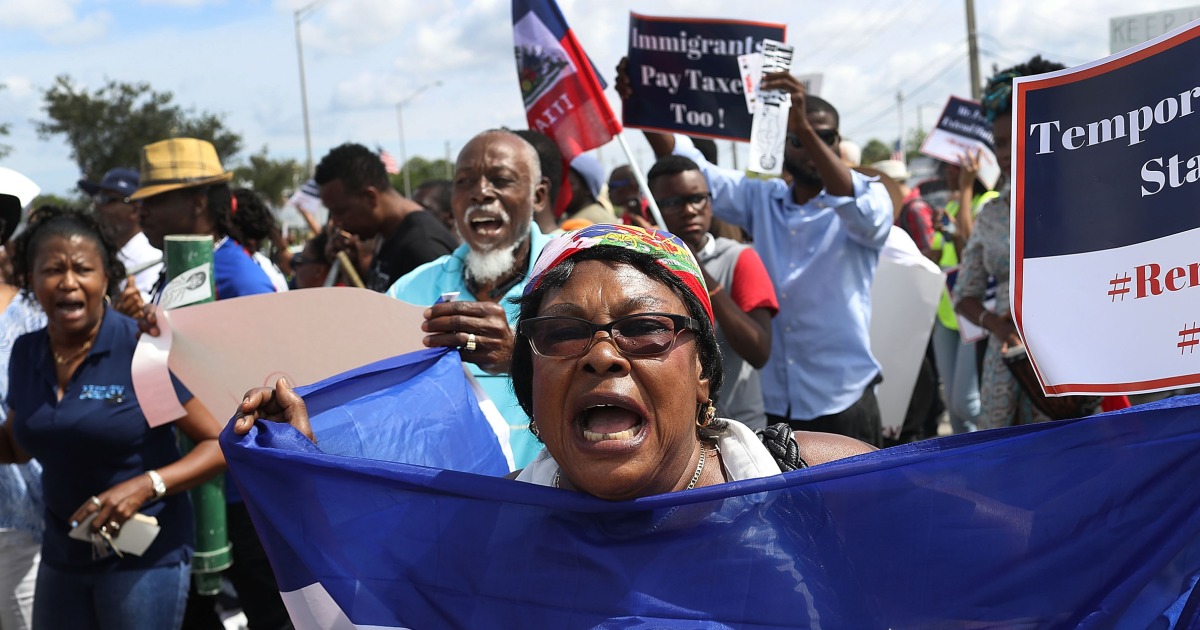DHS Ends Temporary Protected Status for Nicaragua and Honduras - What Does it Mean?

DHS Ends Temporary Protected Status for Nicaragua and Honduras - What Does it Mean?
The Department of Homeland Security (DHS) recently announced that it will be ending Temporary Protected Status (TPS) for approximately 76,000 people from Nicaragua and Honduras. This decision has caused concern and confusion for many who are protected under TPS, as well as for those who advocate for immigration policies. But what does this really mean and why has this decision been made?
Background of TPS
Temporary Protected Status is a program that was created by Congress in 1990 to protect individuals from deportation and grant them work permits if their home country is experiencing war or natural disasters. It is designed to be a temporary solution for those who may not be able to return to their home country safely. The program is also subject to renewal or termination by the DHS, depending on the conditions in the home country.
The Current Scenario
For many people from Nicaragua and Honduras, TPS has been a lifeline. It has allowed them to legally work and support their families in the United States while their home countries recover from devastating events. However, the DHS has determined that the conditions in Nicaragua and Honduras have improved and therefore do not warrant an extension of TPS. This means that those who are currently protected under TPS will have to find an alternative legal status or face deportation.
Implications and Next Steps
The end of TPS for Nicaragua and Honduras has major implications for individuals and families who have established their lives in the United States. For some, it may mean uprooting their families and returning to a country that may still be facing challenges. For others, it may mean seeking alternative forms of legal status, which can be a complicated and costly process. Immigration advocates are calling for Congress to take action to protect those affected by this decision and find a permanent solution for TPS holders.
Conclusion
The decision to end TPS for Nicaragua and Honduras is a reminder of the complex and ever-changing nature of immigration policies. It also highlights the importance of staying informed and advocating for fair and just policies that protect the rights of individuals and families. As the situation continues to unfold, it is important to support those who are affected and work towards finding solutions that uphold the values of inclusivity and compassion.
About the Organizations Mentioned
Department of Homeland Security
The **Department of Homeland Security (DHS)** is a U.S. federal agency established in response to the 9/11 terrorist attacks to safeguard the nation from a wide range of threats including terrorism, natural disasters, cyberattacks, and border security challenges. Its core mission is to protect the American people, critical infrastructure, and uphold national security by coordinating efforts across government and private sectors. DHS oversees immigration enforcement, cybersecurity, emergency response, and counterterrorism initiatives. Formed in 2002, DHS consolidated 22 federal agencies to create a unified structure for domestic security. Its key components include the U.S. Customs and Border Protection, the Federal Emergency Management Agency (FEMA), and the Transportation Security Administration (TSA). Over the years, DHS has played a critical role in preventing terrorist attacks, enhancing airport security, responding to natural disasters like hurricanes and pandemics, and advancing cybersecurity protections for government and private sector networks. In recent years, DHS has shifted focus towards emerging threats such as unmanned drone attacks on infrastructure, cyber intrusions into financial and critical systems, and disruptions to supply chains. Strategic visions for 2025 and beyond emphasize technological innovation, integration of intelligence, and public-private partnerships to address these complex challenges. The agency’s budget reflects its broad mandate, with over $400 billion allocated for fiscal year 2025, underscoring its significant role in national security and emergency preparedness. Notably, DHS has faced scrutiny and calls for reform, especially regarding immigration enforcement and internal mission clarity. Recent directives have expanded immigration enforcement powers to other federal law enforcement agencies, reflecting policy shifts under different administrations focused on border security. For business and technology sectors, DHS represents a major government player driving innovation in cybersecurity, disaster response technology, and infrastructure protection, while navigating evolving threats in a complex geopolitical landscape. Its ongoing modernization efforts aim to enhance resilience and adapt to future security challenges.













